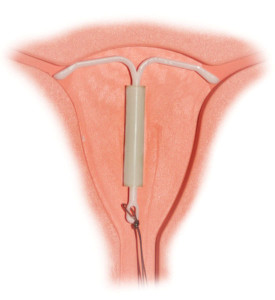Another IUD Lawsuit Filed Over Mirena Uterine Perforation
 Another lawsuit has been filed regarding Mirena uterine perforation, alleging that the popular brand of IUD caused serious damage and pain for a California woman. Chelsea Dawn McClune vs. Bayer Healthcare Pharmaceuticals, Inc. (Case 2:15-cv-03874-SDW-SCM) was filed on June 9, 2015 in the US District Court, District of NJ. The lawsuit is one of thousands filed in the past few years, charging that the IUD carries serious risks of organ perforation and other complications about which doctors and patients have been insufficiently warned.
Another lawsuit has been filed regarding Mirena uterine perforation, alleging that the popular brand of IUD caused serious damage and pain for a California woman. Chelsea Dawn McClune vs. Bayer Healthcare Pharmaceuticals, Inc. (Case 2:15-cv-03874-SDW-SCM) was filed on June 9, 2015 in the US District Court, District of NJ. The lawsuit is one of thousands filed in the past few years, charging that the IUD carries serious risks of organ perforation and other complications about which doctors and patients have been insufficiently warned.
The complaint, filed in a New Jersey court, may be incorporated into a larger litigation process, a multicounty litigation (MCL) now taking place in the state under Judge Brian Marinotti. A multidistrict litigation (MDL), another such process on the federal level, has also been established in the U.S. District Court for the Southern District of New York under Judge Cathy Seibel. Together, the consolidated litigation encompasses well over 3,000 lawsuits.
Mirena uterine perforation requires emergency surgery
The complaint details that plaintiff Chelsea Dawn McClune was implanted with the Mirena IUS (intrauterine system) on February 13, 2013, and that early follow-up exams indicated that she had tolerated the initial procedure well with no signs of IUD migration or perforation. However, on June 25 of the same year, she arrived in the emergency room complaining of significant abdominal pain. An examination found that the IUD had pierced her uterus and was embedded close to the uterosacral ligament, in close involvement with the fallopian tube.
Emergency surgery was required the next day to remove the IUD. In consequence of being implanted with the Mirena device, the complaint charges that McClure “suffered severe and permanent physical injuries, and has endured substantial pain and suffering. She has incurred significant expenses for medical care and treatment, and will continue to incur such expenses in the future. Plaintiff has suffered and will continue to suffer economic loss, and has otherwise been physically, emotionally and economically injured. Plaintiff’s injuries and damages are permanent and will continue into the future.”
Mirena lawsuit alleges lack of warning regarding risk
Like other Mirena lawsuits, McClune vs. Bayer alleges that the defendant provided insufficient warning regarding the risks posed by the birth control device. Crucially, the warning label describes only how migration could possibly occur if perforation takes place during insertion, but makes no reference to spontaneous migration of the device in the months following implantation.
The complaint states that the defendant has a history of “overstating the efficacy of Mirena while understating the potential safety concerns,” citing two specific instances. First, the Department of Health and Human Services issued a warning regarding lack of clear communication of risks and overestimating possible benefits in March 2009. In December of the same year, the Department also contacted the defendant regarding their “Mirena Simple Style Statements Program,” targeted at “busy moms,” which claimed that the product could increase intimacy and romance, and could improve appearance and mood, all unsubstantiated claims, and that serious risks were omitted.
The lawsuit alleges that the Mirena IUD was poorly designed and researched, and that the marketing campaign surrounding it was false to the point of fraudulence.
- Newsweek, The Courtroom Controversy Behind Popular Contraceptive Mirena, http://www.newsweek.com/2014/05/02/courtroom-controversy-behind-popular-contraceptive-mirena-248443.html
- Drugs.com, Mirena http://www.drugs.com/pro/mirena.html
- FDA, Mirena (levonorgestrel-releasing intrauterine system) July 2008 http://www.fda.gov/Safety/MedWatch/SafetyInformation/Safety-RelatedDrugLabelingChanges/ucm121936.htm


 Resources
Resources
 Resources
Resources
